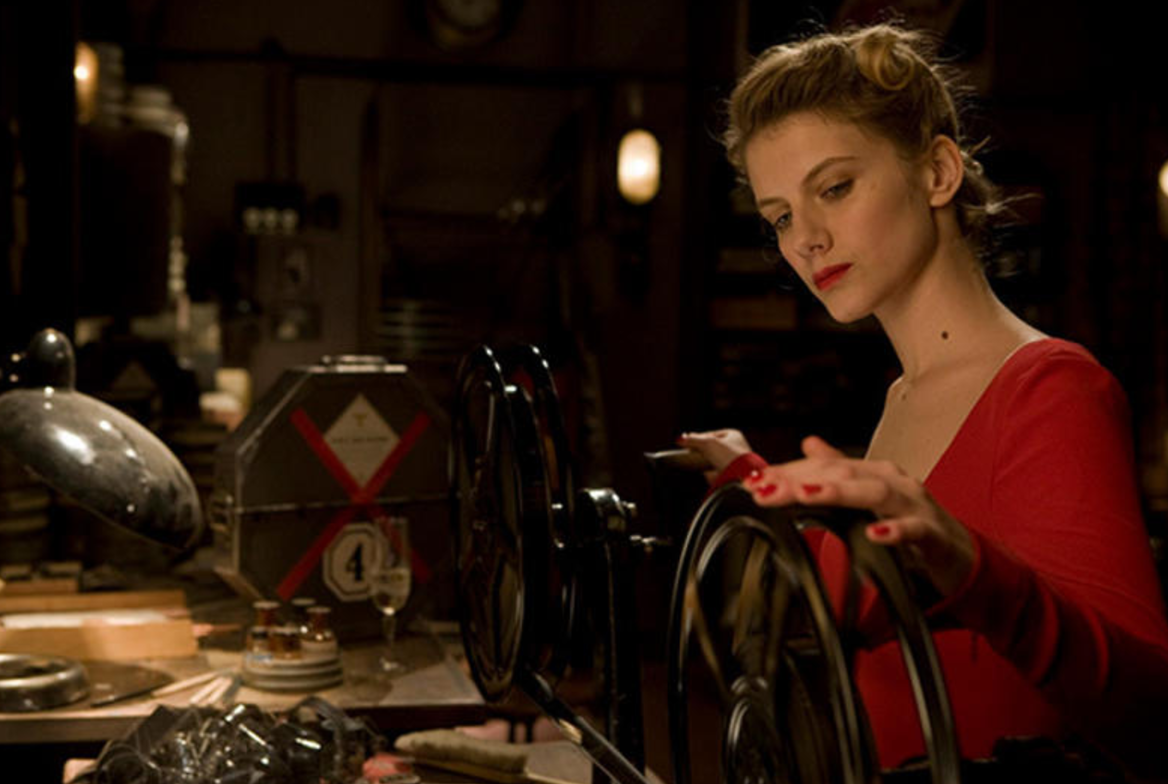Yes, you can watch Independence Day and Born on the Fourth of July to celebrate the U.S.’ separation from Britain–a choice that grows increasingly understandable as time wears on. Or, you can choose to be slightly less on the nose with five films that, while they may not take place on July 4th, reveal the true meaning of being an American–at least, before Trump took office and we all became caricatures of fat people who only eat gross food and watch complacently as our liberties are stripped away.
Inglourious Basterds, Quentin Tarantino (2009): The time in history most indicative of the American spirit–a strength of character that only shows itself when its own soil is attacked (see: Pearl Harbor, 9/11)–is, naturally World War II. Tarantino’s stylized reimagining of how the events that concluded the war ought to have gone down is a prime example of American chutzpah and blacked outedness being the reason so much gets done–even if we do often cock it up in the process and frequently need French people to help us achieve our ultimate aims.
Argo, Ben Affleck (2012): Again, a film tinged with political subterfuge, Argo (Ben Affleck’s true claim to Academy fame–not Good Will Hunting) tells the more esoteric side of the Iran hostage crisis that first began in 1979. Of course, in true American fashion, the screenplay manages to downplay the role of Canadians in the rescue and upset Brits and New Zealanders by claiming their embassies turned away Americans in need during this period. And that’s never favorable. Who wants to upset the cultures that created The Mighty Boosh and Flight of the Conchords, respectively? Nonetheless, Argo is a revelation in the art of the American lie–the unique ability to say you are something and simply become it after enough repetition.
Erin Brockovich, Steven Soderbergh (2000): Arguably the most “American” film on this list, Julia Roberts as Erin Brockovich proves that it takes more than a push-up bra to get ahead, but an unquenchable sort of ambition paired with incomparable sleuthing skills, a never say die attitude and the sort of knack for swearing that brings poetry to use of the word “fuck.” Then again, a push-up bra never hurts when it comes to, ironically, getting men to take a woman seriously. Or at least distracting them long enough to let them think they’re still in control while the female ultimately does what she wants, and what’s best for everyone else.
Norma Rae, Martin Ritt (1979): Like all great tales of American heroes, Norma Rae is based on a true story–specifically that of Crystal Lee Sutton, who was so bold as to insist on the formation of a union in response to the unfavorable working conditions at the factory she toiled in. Indeed, the immortalization of her act of bravery is done justice by Sally Field (an actress as all-American as they come) as she stands up on a worktable and holds up a sign that reads, tersely: UNION. And while American working conditions remain less desirable than ever (you’re a slave to the wage solely for the health care at this point), one still has the right to complain about it through endlessly inutile bureaucratic means.
Mallrats, Kevin Smith (1995): Mallrats is a new American classic–a true homage to the U.S. at its peak of economic supremacy for portraying just how everything to everyone the mall was in the mid-90s. From providing a haven for stoner types like Jay and Silent Bob to do nothing/wax poetic in peace to giving someone as douchey as Shannon (Ben Affleck) a position of authority–clothing store manager–the mall was a sanctuary to people of all ages and backgrounds during its American prime.
And anyway, who knew Affleck would appear in two films on the list? Then again, his Boston connection rather makes him the ultimate representation of true Americana. Or at least tie everything back to the signing of the Declaration of Independence.





















